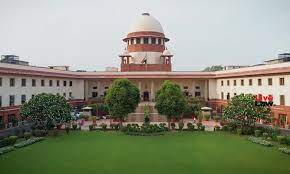With this, we advert to the discussion on the grounds of judicial review that are available to adjudge the validity of a piece of legislation passed by the legislature. We have already mentioned that a particular law or a provision contained in a statute can be invalidated on two grounds, namely :
(i) it is not within the competence of the legislature which passed the law, and/or
(ii) it is in contravention of any of the fundamental rights stipulated in Part III of the Constitution or any other right/provision of the Constitution. (Para 68)
Another aspect in this context, which needs to be emphasised, is that a legislation cannot be declared unconstitutional on the ground that it is “arbitrary” inasmuch as examining as to whether a particular Act is arbitrary or not implies a value judgment and the courts do not examine the wisdom of legislative choices and, therefore, cannot undertake this exercise. (Para 81)
It could thus be seen that this Court has held that the statute enacted by Parliament or a State Legislature cannot be declared unconstitutional lightly. To do so, the Court must be able to hold beyond any iota of doubt that the violation of the constitutional provisions was so glaring that the legislative provision under challenge cannot stand. It has been held that unless there is flagrant violation of the constitutional provisions, the law made by Parliament or a State Legislature cannot be declared bad. (Para 70)
It has consistently been held that there is always a presumption in favour of constitutionality, and a law will not be declared unconstitutional unless the case is so clear as to be free from doubt. It has been held that if the law which is passed is within the scope of the power conferred on a legislature and violates no restrictions on that power, the law must be upheld whatever a court may think of it.
In the present case, it is nobody’s case that Parliament did not have power to enact on the subject on which the aforesaid Amendments have been enacted. As such, the said ground is not available to the petitioners.
Since we have already held that the amendment to clause (d) of Section 25 of the CVC Act and to sub-section (1) of Section 4B of the DSPE Act is not unconstitutional, we see no reason to hold that the amendment to Fundamental Rules, 1922 is impermissible in law. Consequently, we are of the considered view that the challenge to validity of Central Vigilance Commission (Amendment) Act, 2021, the Delhi Special Police Establishment (Amendment) Act, 2021, and the Fundamental (Amendment) Rules, 2021 fails and the writ petitions at the behest of the petitioners to that extent are liable to be rejected. (Para 98)
SUPREME COURT JUDGMENT
Citation: 2023 STPL(WEB) 60 SC
JAYA THAKUR Vs. UNION OF INDIA & ORS.
Decided on 11-7-2023
Click to See Full Text of Judgment: 2023 STPL(WEB) 60 SC







